#enrico rava
Text
Dusted Midyear Round-Up Part 1: Big Thief to Robbie Lee and Lea Bertucci
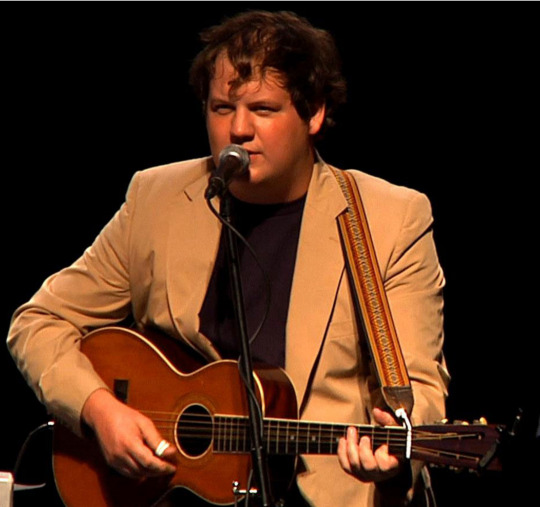
Jake Xerxes Fussell
The year is half over, so it’s time once again to highlight great music. As in previous years at Dusted, we do this by each nominating two favorites from the first six months, then forcing our fellow writers to listen to and write about them. It’s a great exercise, one that more than a few of our contributors say is their favorite part of our website, but not without risk. This year, we had, perhaps, a higher number than usual of writers who didn’t love their assignments, though most tried to find an angle or aspect to appreciate. That’s as it should be. We prize strong opinions almost as much as we encourage open-mindedness. Not every adventure turns out the way you’d like.
Our midyear is made up of ten writers’ top two records, so, as usual, passion wins out over consensus. In our lists, which will run the last day of the series, you’ll find that a few albums popped up again and again but weren’t actually anyone’s absolute favorites. Cate Le Bon made a very strong showing, turning up on five writers’ lists. Oneida, whose album Success won’t be out until August, also did very well with four listings. Outside that pair, it was mostly a matter of ones and twos. We like different stuff. We always have. (Except for that one year where pretty much everyone liked Heron Oblivion a whole lot.) We hope you’ll find something to like, too.
With that, we present the first half of our midyear selections, running from Big Thief to Robbie Lee and Lea Bertucci. Stay tuned for the second half of the alphabet tomorrow and our collection of writers’ lists the day after that.
Big Thief — Dragon New Warm Mountain I Believe in You (4AD)
Dragon New Warm Mountain I Believe In You by Big Thief
Who picked it? Tim Clarke
Did we review it? Yes, Tim wrote, “Dragon New Warm Mountain I Believe In You deftly touches down in the band’s usual folk-rock territory, while also exploring a new terrain of sounds and production styles that broaden their musical palette.”
Derek’s take:
Twenty-first century, Brooklyn-by-way-of-Boston, studio-sired folk rock with beats. Not my customary wheelhouse or even sailing vessel. The Berklee College of Music pedigree of all four core members of Big Thief comes across in both their songcraft and collective courage to go shambolic and abstruse when the whim takes them. More flirtations with dissonance and the prickly pear fretwork that flavors tunes like “Time Escaping” and “Love Love Love,” and “Blue Lightning,” the last a tambourine-stamped, countrified shuffle, would be welcome, but on the midpoint “Flower of Blood” focus cants epically to fiercely ferrous, melismatic guitar rock. Fiddle, Jew’s harp, pedal steel, flute, accordion, and piano from esteemed guests enter the equations on occasion, accenting frontwoman Adrianne Lenker’s earnest and metaphor-friendly lyrics/vocals that reliably capture the shifting topical center(s). Feeling like the listener equivalent of a landlubber castaway isn’t so disconcerting when the far-ranging voyage in question comes equipped with such seasickness-alleviating trappings.
Derek Taylor
Michael Bisio Quartet — MBefore (Tao Forms)
MBefore by Michael Bisio Quartet
Who Picked it? Derek Taylor
Did we review it? No.
Bryon Hayes’ take:
Mr. Taylor knows his jazz, so it’s no surprise that he chose a gem with this mid-year pick. MBefore is the sound of four veteran composers and improvisors coming together as one unit with a singular mission. The performers make this fact known early on. The quartet features some should-be-marquee names. Bassist Bisio and skin wrangler Whit Dickey are current (Bisio) and former (Dickey) collaborators with Matthew Shipp. The 87-year-old Karl Berger is a founder of the Creative Music Studio and has performed and recorded alongside a number of jazz legends. Mat Maneri is one of the most unique voices in jazz today, wielding his viola as if it’s a horn. Yes, this is quite the interesting arrangement of instruments. Maneri and Berger, here playing vibraphone, are ostensibly the front line, yet the quartet is so in sync that there’s no discernable rhythm section. Equally matched, the players create the perfect storm of sound. Furthermore, MBefore is a pleasurable listen and a record that you don’t need to be among the jazz cognoscenti to appreciate. Swell pick, Derek.
Black Fucking Cancer — Procreate Inverse (Sentient Ruin Laboratories)
Procreate Inverse by BLACK FUCKING CANCER
Who picked it? Jonathan Shaw
Did we review it? Yes, Jonathan wrote, “Truth be told, even in the absence of ironies, Black Fucking Cancer’s music is still decidedly loathsome. Likely the band wouldn’t have it any other way.”
Jennifer Kelly’s take:
If I’m reading Jon’s review right, Procreate Inverse is meant to be offputting, universally so, but perhaps, especially to black metal neophytes like, well, like yours truly. And indeed, Black Fucking Cancer spews forth a firehose of violent sound, initially disorienting and always confrontational. The opener “Excurses” is hard, at first, to make any sense of, collapsing as it does into a black hole of frenetic noise, its ratcheting assaults of drum and guitar giving way, at intervals, to raw-throated roars. And yet, there’s structure here under the mayhem. The guitar riffs run at unfathomable speed and volume, yet they are synced precisely with the machine-gun roar of drums. The stops and starts are clean. This is a band, as Jon noted, that can go long, as in the title track, without getting lost, that can build satanic cathedrals of epic sound without sounding parodic, that can even slip in an opera choir without risking silliness. I will never get used to the metal voice and am not really a convert, but I can see how a person accustomed to this level of stimulus would have trouble listening to anything else. Astonishingly intense, sometimes painful, but worth hearing.
Broadcast — Maida Vale Sessions (Warp)
Maida Vale Sessions by Broadcast
Who recommended it? Ian Mathers
Did we review it? No, but we talked about it at length:
Bill Meyer’s take:
I sat out the Listening Post in which other Dusted writers discussed the recently released archival trove by Broadcast for two reasons: I was in the middle of a deadline clusterfuck, trying to meet obligations to other publications; and I had not previously found my way into Broadcast’s music. When Ian Mathers wrote about people who dismissed Broadcast as “kind of like Stereolab,” he was referring to people like me, and I just wasn’t in a hurry to give them another go. Ian also opined that such people were missing something, and now that I have given the band one more listen, I have to agree with him. While Broadcast and Stereolab shared a penchant for combining breezy 1960s pop with contemporaneous experimental sounds, this collection of BBC sessions captures some key differences. Broadcast’s rhythmic template is more girl group than motorik, and the songs feel more personal and specific than Stereolab’s politically motivated commentary. Bolstered by live in the studio punch, Maida Vale Sessions invites the listener to appreciate early Broadcast’s solidity as a sort of postmodern groovy combo. I’m not sure if I really get it, but I’ve at least advanced to the point where I don’t mind it.
Cloakroom — Dissolution Wave (Relapse)
Dissolution Wave by Cloakroom
Who picked it? Ian Mathers
Did we review it? Yes, Ian wrote, “As much as this album is about writing songs on an asteroid at night, and as much as you can relate that to current events (none of us truly knowing how much our actions are protecting or not those around us), it’s equally about life before and beyond COVID, all of us putting out what we can humming into the ether, trying to connect and sustain.”
Ray Garraty’s take:
This is one of those concept albums you’d never guess has a concept until the one-sheet tells you so. The concept is pretty intriguing: “…the dissolution wave—wipes out all of humanity’s existing art and abstract thought. In order to keep the world spinning on its axis, songsmiths must fill the ether with their compositions.” If all art is wiped out, and a host of new creations are needed, you’d expect something groundbreaking to fill the void. Unfortunately, we have been fooled: Cloakroom serves us a dish that is past its expiration date. It’s the same shoegaze- y shoegaze, with extra portions of doze, that has continued to appear despite a time of death pronounced in early 1990s. On tracks like “Lambspring” and “Dissembler,” Cloakroom switches to a fuzzier, punchier sound, and it kinda works. Then the vocalist opens his mouth, pouring too much sweet stuff over the gutsy guitars. If there were no alternative, we’d take Cloakroom’s songs in the bleak future they project. On our present planet Earth, we better wait for something more original.
Andrew Cyrille, William Parker and Enrico Rava — 2 Blues for Cecil (TUM)
youtube
Who picked it? Derek Taylor.
Did we review it? Yes, Derek wrote, “Taylor tributes may be plentiful, but this one’s place at the peak of the collective edifice feels unassailable.”
Tim Clarke’s take:
Aside from bassist William Parker, I’m familiar with neither the music of these players, nor of the pianist to whom this album is dedicated. As a result I find it hard to gain a foothold during long stretches of this album in which the loose, tumbling playing of drummer Andrew Cyrille rarely locks into anything resembling a conventional beat. Flugelhorn player Enrico Rava offers delicate, plaintive and melodious lines when playing slowly; that’s when I find myself most engaged, able to follow the music’s internal logic. When the trio plays fast and loose I struggle to keep up; I find myself distracted by memories of an episode of The Mighty Boosh in which Howard Moon is possessed by the Spirit of Jazz and showboats over his bandmate’s electro-pop project with rapid-fire blowing. There’s no showboating on 2 Blues for Cecil — the playing is poised and often very beautiful — but it talks a language I find it difficult to relate to.
Destroyer – Labyrinthitis (Merge)
LABYRINTHITIS by Destroyer
Who picked it? Jennifer Kelly
Did we review it? No, but Jen did a long interview for another publication.
Derek Taylor’s take:
An admirable amount of loose irony exists in a band called Destroyer birthing and releasing their 13th record. A point is perhaps that destruction and creation are not particularly distant endeavors when one owns the object acted upon. Being unfamiliar with the earlier dozen discographical entries, and bandleader Dan Bejar’s other projects, I can’t say with certainty. What Labyrinthitis does do is cram a startling, stimulating amount of information and intimation of assorted antecedents into a beats-buoyed odyssey across ten pulsating, perambulating tracks. Bowie (“It’s in Your Heart Now,” and “The Last Song”), New Order (“Suffer,” “All My Pretty Dresses,” and “The States”), Frankie Goes to Hollywood (“Eat the Wine, Drink the Bread”) - filaments of each bubble up and recede in the swirling, synthesizer-layered edifices. It’s all mostly adjacent my comfort zone(s), and Bejar’s lyrics remain Delphic in all but their diction, but there’s no denying the extent of artistic openness brought to bear in authorship and execution.
Jake Xerxes Fussell — Good and Green Again (Paradise of Bachelors)
Good and Green Again by Jake Xerxes Fussell
Who picked it? Bill Meyer, for one
Did we review it? Yes. Justin Cober-Lake said, “As Fussell finds new ways to explore old music, the arrangements and production provide a few more tools in his craft.”
Patrick Masterson’s take:
Jake Xerxes Fussell’s pedigree as the son of a folklorist is by now well known to any veteran members of the Dusted readership; after all, we’ve been tracking his work right from the jump. But after three records mining Americana’s past, the Columbus, Georgia, native opted to tweak the approach on Good and Green Again by including some originals, too (the spare “Washington” and three instrumentals deployed to great effect: “Frolic,” “What Did the Hen Duck Say to the Drake?” and “In Florida”). Such is his ability to arc source material to suit his style and vision, however, that if I hadn’t told you as much, it’s unlikely you would’ve even thought to ask. Featuring an accomplished cast of support players flavoring songs with instruments including the French horn, vibraphone and assorted strings, the album burns slow like a revelation, the heralding of new life, the dawn of farewell loves found anew. It’s a record that lives up to its title. You can feel the grass growing just that little bit brighter below you when you listen. I don’t know how much good is left in the world at this point, but this album makes you want to believe there’s still time for so much more to show itself.
Kids on a Crime Spree — Fall in Love Not in Line (Slumberland Records)
Fall In Love Not In Line by Kids On A Crime Spree
Who picked it? Andrew Forell
Did we review it? Nope
Jonathan Shaw’s take:
“Karl Kardel Building” is the opening track of Fall in Love Not in Line, and it’s sublime. Plenty of other bands have done the mid-60s-pop, Wall-of-Sound-pastiche thing, to varying effects (the Fresh and Onlys made some great tunes; Dum Dum Girls made some money…). Few have captured the chaotic joys of 7” singles that big and boisterous; and it’s possible that the attendant wide-eyed astonishment at the wonders pop music can work is now entirely lost to us. Kids on a Crime Spree recover what they can, and “Karl Kardel Building” evokes shivery delight. There’s something else that the band seems to understand about those Phil Spector epics: the dangerous vibe of sex and violence that bubbled and steamed under all the multitracking and reverb. On “Vital Points,” Mario Hernandez sings, “I want to piss on the public opinion / I want to piss on a police car,” the casual threats fizzing away alongside the song’s multiple hooks. The whole thing smolders. Even more effective are the aching, plaintive proclamations of infatuation in “When Can I See You Again?” The guitars growl, recalling Poison Ivy’s imperious sneer and psychobilly riffs. But Hernandez is more interested in desperation: “When can I see you, before our world ends?” Love’s stakes are always high — so imagine being a lovelorn kid now, among the pandemic and climate change and the bristling AR-15s. Pastiche always incorporates ironic distance from its materials and its world. The best songs by Kids on a Crime Spree counteract the ironizing; they make you feel like a teenager holding a transistor radio close, tuning in through all the static, hoping to hear that song again.
Robbie Lee & Lea Bertucci — Winds Bells Falls (Telegraph Harp)
Winds Bells Falls by Robbie Lee & Lea Bertucci
Who picked it? Bryon Hayes
Did we review it? Yes, Bryon said, “Winds Bells Falls is a universe in miniature, one where time is encouraged to fold back onto itself and reveal the stunning imagery that arises.”
Jennifer Kelly’s take:
Bell sounds glisten in “Glitter and Gleam,” at first in a light patter of sounds, later in a glowing striation of diverse tones, some like glockenspiel, others deeper and woodier like a marimba. The sounds are courtesy of archaic instrument experimenter Robbie Lee, but the way they twist and shift and morph on and off key comes from Lea Bertucci’s electronic wizardry. The two artists work together to look at unusual sounds through a funhouse mirror, in way that is sometimes abstract and cerebral, but frequently beautiful. I like the bell songs best, but there are other textures woven together in sound collage, the owlish hoots of obscure woodwinds of “Division Music,” massed into multilayered sculptures of avian sounds, the pensive keyboards of “Twine and Tape,” sinking gently into a time-warp, the woozy scrawl of “Azimuth”’s clarinet-ish sounds, mostly air with a little vibrating tone at the bottom. The album has the aura of a magic forest, draped in moss and old vines, a bit foreboding, but with intervals of gorgeous clarity interspersed.
#dusted magazine#midyear#midyear 2022#big thief#tim clarke#derek taylor#michael bisio quartet#bryon hayes#black fucking cancer#jonathan shaw#jennifer kelly#broadcast#bill meyer#ian mathers#cloakroom#ray garraty#andrew cyrille#william parker#enrico rava#destroyer#jake xerxes fussell#kids on a crime spree#andrew forell#robbie lee#lea bertucci
6 notes
·
View notes
Text
0 notes
Photo

The trumpeter Enrico Rava and pianist Fred Hersch interpret the lilting romance of ‘The Song Is You’ by Oscar Hammerstein and Jerome Kern, the saxophonist Sam Gendel slips inside the squelching bass and cascading shower head of ‘Anywhere’ by 112 and Lil’ Zane, and Lori Goldston goes long with her Pacific Northwest collaborator Greg Kelley for the visceral strains and gossamer improvisations of All Points Leaning In. Plus Skech185, Jeff Markey, Lia Kohl, Deerhoof, and Vladislav Delay.
https://culturedarm.com/tracks-of-the-week-22-01-23/
#music#new music#best new music#tracks of the week#vladislav delay#sam gendel#meshell ndegeocello#lori goldson#greg kelley#kelela#skech185#jeff markey#deerhoof#lia kohl#enrico rava#fred hersch#jazz#hip hop#indie#field recordings#experimental#ambient
1 note
·
View note
Text
PODSUMOWANIE ROKU 2022 - Jazz (świat)
PODSUMOWANIE ROKU 2022 – Jazz (świat)
ALBUM ROKU 2022
Cecile McLorin Salvant „Ghost Song”
Nonesuch Records
WYRÓŻNIENIA:
Max Andrzejewski “Mythos” – Backlash Music
Jane Ira Bloom “Picturing the Invisible – Focus 1” – Anderson Audio
Nikol Bokova “Naked Pieces” – Soleil et Pluie
Patricia Brennan “More Touch” – Pyroclastic Records
Chimytina “Constellations”
Avishai Cohen “Naked Truth” – ECM
Emmet Cohen “Uptown in Orbit” – Mack…
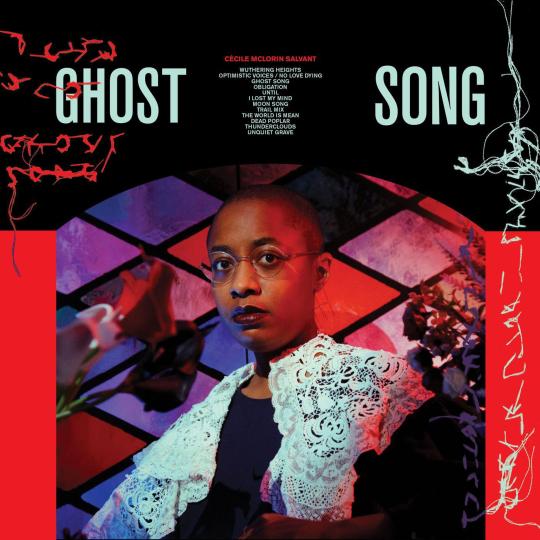
View On WordPress
#Anderson Audio#Andrew Cyrille#Andy Milne#Avishai Cohen#Backlash Music#BMC Records#Cecile McLorin Salvant#Chad Fowler#Chimytina#Clement Janinet#Dan Chmielinski#David Murray#ECM#Emmet Cohen#Enrico Rava#Eri Yamamoto#GLM Music#Gordon Grdina#Greg Osby#Imani Records#Ingrid Laubrock#Intakt Records#Jane Ira Bloom#Josh Sinton#Kevin Eubanks#Lisbeth Quartet#Mack Avenue#Mahakala Music#Mario Laginha#Mark Helias
1 note
·
View note
Text
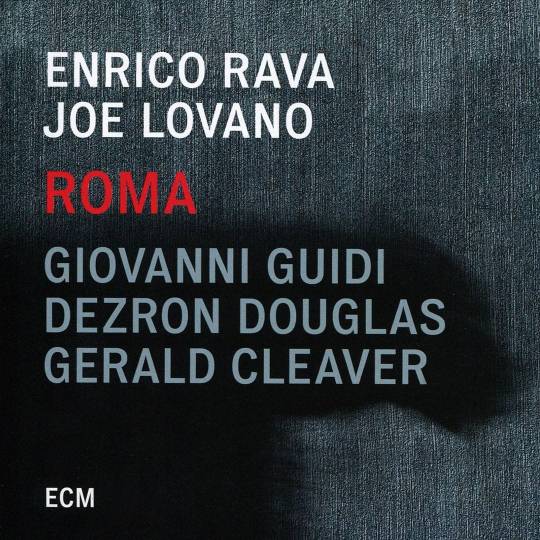
AllMusic Staff Pick:
Joe Lovano / Enrico Rava
Roma
Recorded live in 2018 at Rome's Auditorium Parco Della Musica, Roma is the engaging debut collaboration between trumpeter Enrico Rava and saxophonist Joe Lovano. Although both artists are masterful improvisers known for their lithe approaches to modern jazz, their intense compatibility displayed throughout Roma might seem from the outside an unlikely event. While Rava made his ECM debut with 1975's classic The Pilgrim and the Stars, it wasn't until 2019 that Lovano joined the label with his textural, atmospheric Trio Tapestry. In the intervening years between those two albums, the two initially disparate artists have seemingly moved ever closer.
- Matt Collar
1 note
·
View note
Text
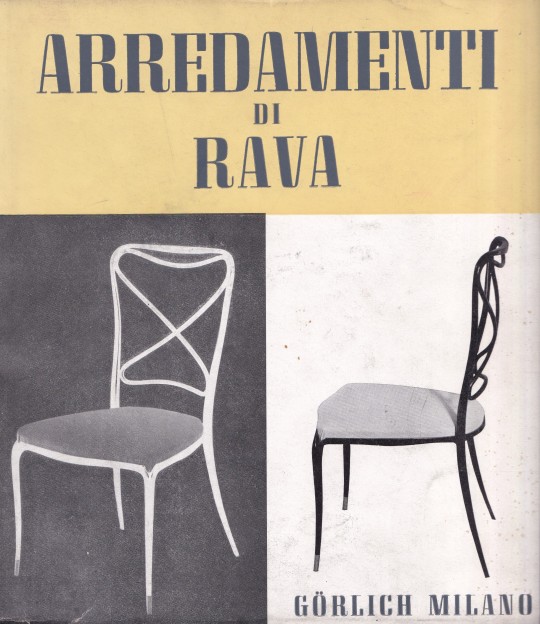












Arredamenti di Rava
prefazione di Carlo Mollino
Görlich Milano, 1949, 96 pagine, 22,5x24,7cm, Brossura illustrata con sovraccoperta in carta da lucido, 131 illustrazioni
euro 200,00
email if you want to buy [email protected]
Il volume è l’unica testimonianza omogenea relativa all’opera dell’architetto Carlo Enrico Rava. Documenta attraverso un ricco repertorio di immagini il lavoro nel campo dell’architettura degli interni svolto per una numerosa clientela, passando per la partecipazione a mostre ed esposizioni, fino al mobile singolo.
Scarce book on Carlo Rava furniture design with an introduction by Carlo Mollino.
14/12/23
#Carlo Enrico Rava#arredamenti di Rava#Carlo Mollino#rare books#design books#designbooksmilano#fashionbooksmilano
6 notes
·
View notes
Photo

Enrico Rava & Fred Hersch – The Song Is You
Enrico Rava – flugelhorn
Fred Hersch – piano
ECM Records, 2023
5 notes
·
View notes
Video
youtube
Enrico Rava & Fred Hersch - The Song Is You | ECM Records
6 notes
·
View notes
Text

Atmosfere cosmopolite
per un desiderio di scovare angoli segreti della musica.
Vagando tra i sogni il suo jazz conduce il cuore in giro per mondi infiniti “perché la cosa più importante è ascoltarsi e capirsi”.
La tromba ha ali d’angelo
il suo volo incanta fino alla melodia.
Nicola Vacca, Enrico Rava:: interiors & secrets tratto da Arrivano parole dal jazz
#jazzinVersi
7 notes
·
View notes
Video
youtube
Eberhard Weber - Why Not Brazilian - 2007
Eberhard Weber - bass Enrico Rava - trumpet Reto Weber - drums
#EberhardWeber #EnricoRava #RetoWeber #contrabass #doublebass #basssolo #jazz #jazzbass #jazzbassist #jazzmusic #bassterror #videooftheday
2 notes
·
View notes
Video
youtube
Enrico Rava - Tomasz Stańko Quintet • Garana Jazz Festival 2017
Enrico Rava (trumpet), Tomasz Stańko (trumpet), Giovanni Guidi (piano), Reuben Rogers (bass), Gerald Cleaver (drums)
1 note
·
View note
Text
Fred Hersch Silent, Listening
Fred Hersch
Silent, Listening
ECM
Like Keith Jarrett, Chick Corea, Craig Taborn, Paul Bley and several others, Fred Hersch now adds his name to the vast solo piano catalog of ECM, with Silent, Listening. His is a mix of composition and improvisation with originals and a few standards as well. Hersch was inspired by his ECM duet album with Enrico Rava, The Song Is You, and vowed to return to the…
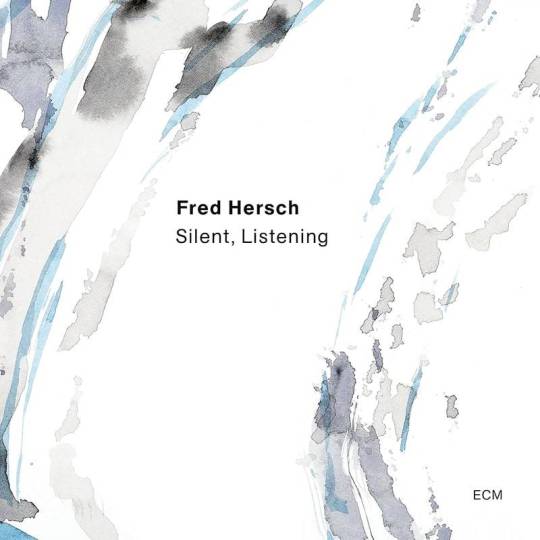
View On WordPress
0 notes
Text
Enrico Rava, Fred Hersch “The Song Is You”
Enrico Rava, Fred Hersch “The Song Is You”
ECM, 2022
“The Song Is You” Enrico Ravy i Freda Hersach jest płytą z gatunku tych, o których trudno nawet marzyć, że kiedykolwiek powstaną. Niespodzianki jednak zdarzają się i teraz możemy cieszyć się mistrzowską muzyką w wykonaniu dwóch wielkich gwiazdorów jazzu.
Panowie koncertowali wspólnie już w ubiegłym roku, a w listopadzie 2021 spotkali się w Auditorio Stelio Molo RSI w Lugano, na sesji…

View On WordPress
0 notes
Text
Enrico Rava e Richard Galliano a Imola per Crossroads 2024
Due concerti si terranno al Teatro
Ebe Stignani di Imola per l’edizione 2024 del festival
itinerante Crossroads, a dimostrazione ancora una volta della
centralità della città nella mappa geografica della kermesse
musicale organizzata da Jazz Network e dall’assessorato alla
Cultura della Regione Emilia-Romagna. Gli spettacoli in
programma allo Stignani sono tra i momenti più attesi
dell’esteso…
View On WordPress
0 notes
Video
napoli by Dave Binyon
Via Flickr:
Music: Please Right Click and select "Open link in new tab" www.youtube.com/watch?v=5_-Kqw16evY ENRICO RAVA - E PENSO A TE e penso a te (I think of you)
0 notes

